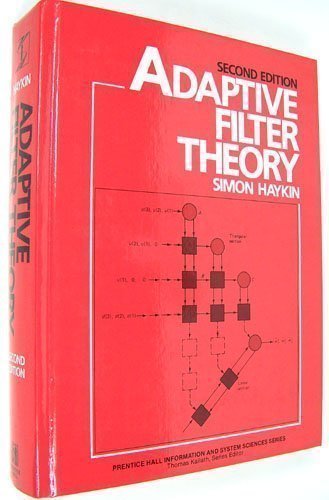This book develops the mathematical theory of linear adaptive filters with finite impulse response. Examples and computer experiment applications illustrate the theory and principles. The second edition has also been restructured with an introduction followed by four parts: discrete-time wide-sense station stochastic process; linear optimum filtering; linear FIR adaptive filtering; limitations, extensions and discussions. New features includes new chapters on QR decomposition-based lattice filters, on blind deconvolution, new appendix material on complex variables and regulation.
CONTENTS
Preface
Acknowledgments
Background and Preview
- Chapter 1 Stochastic Processes and Models
- Chapter 2 Wiener Filters
- Chapter 3 Linear Prediction
- Chapter 4 Method of Steepest Descent
- Chapter 5 Least-Mean-Square Adaptive Filters
- Chapter 6 Normalized Least-Mean-Square Adaptive Filters
- Chapter 7 Frequency-Domain and Subband Adaptive Filters
- Chapter 8 Method of Least Squares
- Chapter 9 Recursive Least-Square Adaptive Filters
- Chapter 10 Kalman Filters
- Chapter 11 Square-Root Adaptive Filters
- Chapter 12 Order-Recursive Adaptive Filters
- Chapter 13 Finite-Precision Effects
- Chapter 14 Tracking of Time-Varying Systems
- Chapter 15 Adaptive Filters Using Infinite-Duration Impulse Response Structures
- Chapter 16 Blind Deconvolution
- Chapter 17 Back-Propagation Learning
Epilogue
- Appendix A Complex Variables
- Appendix B Differentiation with Respect to a Vector
- Appendix C Method of Lagrange Multipliers
- Appendix D Estimation Theory
- Appendix E Eigenanalysis
- Appendix F Rotations and Reflections
- Appendix G Complex Wishart Distribution
- Glossary
- Bibliography
- Index
